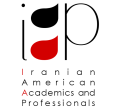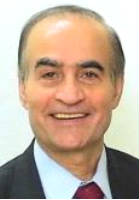Where: Montgomery Community College (Rockville Campus) – Humanity Building (HU), Conference Room 009 (Get Directions, Campus Map )
Language: English
Synopsis:
Dr. Shahrokh Fardoust will present a brief picture of the current conditions of the global economy and its longer prospects, based on his recent research:
1. Since the 1990s, the economic center of gravity has started to shift toward Asia, with important new trends concerning economic growth, demographic changes; trade, finance, infrastructure investment, climate change and resource depletion; and the state of global economic governance.
2. The slowdown in global economic growth and significant increases in income inequality in many developed and developing countries raise serious concerns.
3. The global economy has also experienced massive balance of payments imbalances, reflecting large and persistent current account surpluses in a number of countries, including massive surplus of oil exporting countries. Some experts have argued these imbalances may have played a key role in causing the 2008-09 crisis.
4. The time has come to seriously think about how improvements in both national and international policies could lead to better outcomes.
Dr. Hossein Razavi will present a brief picture of global energy trends while discussing some specific issues that are of relevance to the policy decisions of oil producing countries. These issues include:
1. How the development of clean energy affects the demand for oil and gas?
2. How the increasing production of US shale oil and gas will affect the international price of oil?
3. How much of its oil should a country produce now and how much of it should it keep in the ground for future generations?
4. What should a country do with the money that it earns from selling its oil: spend it on making people happy; spend it on developing the country’s infrastructure, or save it in the bank for future generations?
About Dr. Shahrokh Fardoust :
Shahrokh Fardoust is a research professor at the Institute of the Theory and Practice of International Relations at the College of William and Mary. He has more than 30 years’ experience in crafting economic development policy and analyzing the global economy. Until 2011, he was Director of Strategy and Operations, Development Economics, the World Bank, where he contributed to the research and policy priorities of the Chief Economist, the G20’s development agenda, and the review and quality assurance of the World Bank’s major policy papers and reports. His previous positions at the World Bank included Senior Adviser to the Director-General of the Independent Evaluation Group and Senior Economic Adviser to the Chief Economist. Dr. Fardoust obtained his MA and a PhD in economics from the University of Pennsylvania. He has authored numerous papers and reports on development policy. He is a co-editor of Post Crisis Growth and Development: A Development Agenda for the G20 (World Bank, 2011) and Towards a Better Global Economy: Policy Implications for Global Citizens Worldwide in the 21st Century (Oxford University Press, 2014). He is also the president of International Economic Consultants, LLC, and a member of the SovereigNET Advisory Council at the Fletcher School at Tufts University.
About Dr. Hossein Razavi :
Dr. Hossein Razavi has worked at the World Bank for more than 20 years and has held a number of technical and managerial positions including Director of the Energy Department., and the Director of Private Sector Development. He has worked extensively in the countries of the Middle East and North Africa, Asia, and Eastern and Central Europe. He managed the operational work of the World Bank in the oil, gas and power sectors in various countries. He also led the development of the World Bank’s various business strategies including subnational lending, guarantee products and the GEF facility. Dr. Razavi has pioneered research and executive analysis in power sector planning, regional energy development, and project finance. He is a member of the editorial boards of the Energy Journal and Energy Economics. He holds an MS in Engineering, a PhD. in economics and is a graduate of the Harvard Advanced Management Program. He has published extensively in the field of energy. His papers have been published in the Energy Journal, Energy Policy, Energy Economics, and Annual Review of Energy and Environment. His books include Financing Energy Projects in Emerging Economies, published by PennWell Books, and Fundamentals of Petroleum Trading, published by the Westview Press.
Fee (including dinner): $10 Students, $15 Public
Please click here to RSVP.


